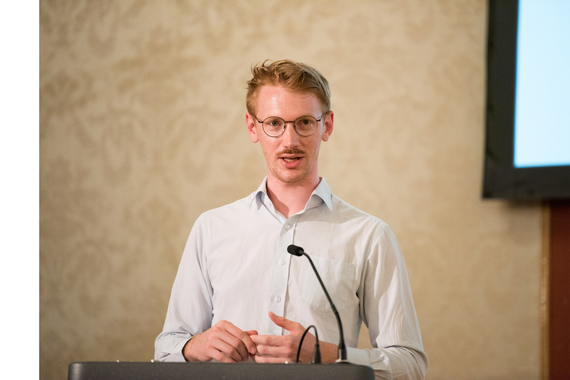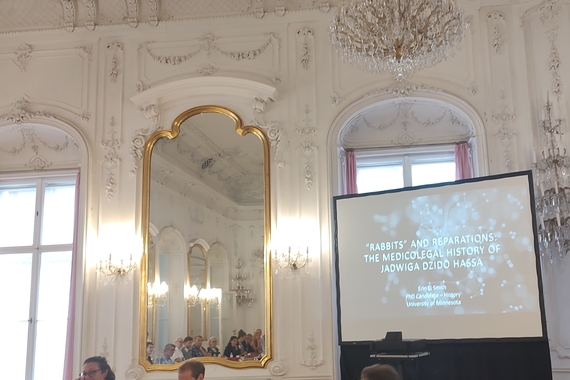Brendan Haidinger wins 2024 Dissertation Prize
The Prize Committee at the Center for Austrian Studies is pleased to announce that its 2024 Dissertation Prize has been awarded to Brendan Haidinger for his dissertation, Civil Society and State Security in Central Europe, 1770-1830.
From the Laudatio:
Haidinger explores the transformation of the concept of Polizei in Central Europe from a cameralist, administrative one to one grounded in state security. Although spurred on by the events of the French Revolution, this transformation actually began in the early years of Empress Maria Theresa’s reign and became more defined during the decade preceding the revolution. Haidinger also looks at how policing continued to develop after the fall of Napoleon. In so doing, he illustrates continuities that are often missed. Another commendable feature of Haidinger’s work is his juxtaposition of changes in the Habsburg monarchy with similar developments in Prussia, Bavaria, and Habsburg Italy; he demonstrates persuasively that the existence of secret societies and the fear they elicited from conservative governments contributed to the development of policing, including the secret police, throughout Central Europe. Haidinger draws extensively from archival collections in Vienna, Berlin, and Munich to support his compelling argument.
Haidinger’s work is timely as policing has become a pivotal subject in today’s world. Recent debates on how to change policing culture and structure to make it more suited to citizens’ needs demonstrate the salience of Haidinger’s topic. By tracing the development of policing in the period under consideration, this dissertation demonstrates not only the importance of Polizeiwissenschaft but also how the police in the regions under consideration came to assume such wide roles ranging from forest management to price regulation and policing criminality.
Haidinger also offers us a study that demonstrates a command of archival sources and secondary literature. The work is methodologically sophisticated and suitably comparative; it allows for effective contextualization of the Austrian circumstances. No less important is the fact that he has written a manuscript that is well-organized and a pleasure to read.
Haidinger's dissertation is available online through ProQuest (via subscription)
About the Recipient: Dr. Brendan Haidinger is from Binghamton, NY, and is currently an adjunct Professor of History at the University of Delaware where he teaches courses on modern European History. His research focuses on Central Europe’s Sattelzeit (1750-1850) and the impact of revolutionary upheaval on the political culture of German-speaking Europe. Dr. Haidinger’s interests more generally include the origins of democratic practice in Europe and the various state responses to increased political participation. His research has been supported by the Social Science Research Council, the Masséna Society, and the Central European Historical Society. He is currently planning a research trip to the Czech Republic where he hopes to address questions regarding Vienna’s relationship to its provinces during the revolutionary and post-Napoleonic eras.

